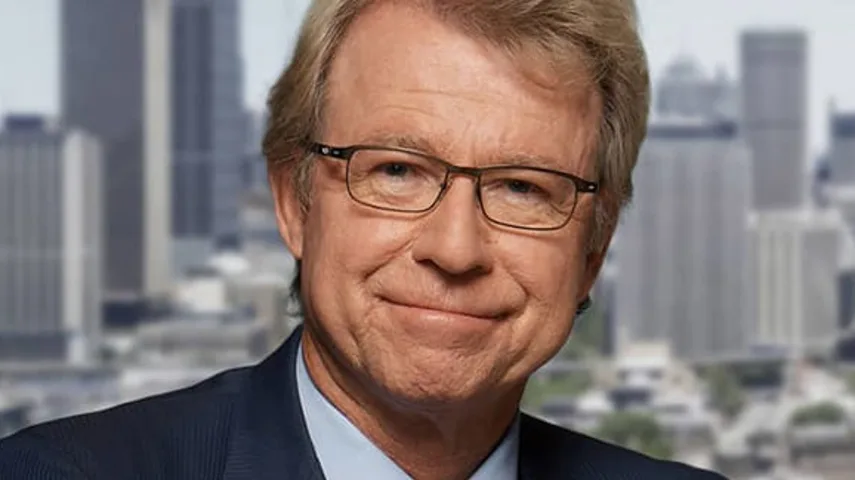Stick with US or pivot: Super funds at crossroads



Long-term investors face a critical decision – stay the course or pivot, says leading economist Shane Oliver.
The S&P 500, down roughly 3 per cent year to date, is set to close the year around 6,150, based on AMP’s projections.
This falls short of Goldman Sachs’ forecast, with the firm saying the index will reach 6,200 by the end of 2025, even after trimming its initial target of 6,500.
For long-term-focused super funds, many of which benefited from the strong performance of US equities in 2023 and 2024, the question now is whether to endure a potentially less profitable year ahead for US markets.
“It’s an interesting time when you’re trying to look at markets,” AMP’s chief economist Oliver, told Super Review.
Oliver said that super funds, which typically track benchmarks like the MSCI World Index, face significant exposure to the US – now comprising 75 per cent of the benchmark – which could leave them vulnerable if US performance falters.
“The complication now is that there’s more question marks hanging over the US. In any case, even if you’re just following the benchmark, you’ve got 75 per cent weight to the US, which is a relatively high exposure, resulting in some vulnerability there,” he said.
“I suspect super funds will be thinking long and hard about all of this. I can’t see super funds sort of opting for saying, ‘Oh well, we’ve had a 10 per cent dip, let’s go overweight on the US’.”
New data from Chant West, shared with Super Review, revealed that the median growth fund has slipped by about 2.3 per cent since January, with some volatility stemming from weaker US economic data and concerns about Donald Trump’s tariff announcements.
But, according to Chant West’s senior investment research manager, Mano Mohankumar: “It’s important to see things in context.”
With 55 per cent of Australia’s retirement capital still invested in listed sharemarkets, Mohankumar said that growth funds are positioned to capture a significant portion of the upside when these markets perform well. This was evident in the past two calendar years, when the median growth fund returned 9.9 per cent in CY23 and 13.4 per cent in CY24.
“Members also need to be reminded that super funds’ portfolios have time and time again successfully weathered periods of market volatility,” Mohankumar said.
“Most Australians have their super invested in well-diversified portfolios with their exposure spread across a wide range of growth-orientated and defensive asset classes. That diversification helps limit the damage during periods of share market weakness as we saw in February and March to date.”
Alternative markets increase appeal
The question for funds now, according to Oliver, is whether they weather the storm or pivot to other markets, some of which are benefiting from the impact of US President Trump’s policies, which have effectively pushed other countries to become more self-reliant.
Namely, Germany earlier this month approved a sweeping fiscal package to significantly boost defence and infrastructure spending amid rising geopolitical tension globally.
Market expectations that the rest of Europe will follow suit are coming to fruition with Sweden this week announcing it will aim to increase defence spending to about 3.5 per cent of gross domestic product by 2030.
“A lot of super funds, having seen the outperformance by Europe, would be thinking, ‘Maybe it’s time to sort of skew towards Europe’,” Oliver said.
“That’s the debate for super funds at present.”
Notably, the EURO STOXX 50 has seen year-to-date growth approaching 9.4 per cent, while Japan’s Nikkei 225 has fallen nearly 6 per cent in 2025, and Chinese stocks have remained largely flat.
Ultimately, Oliver said that Australia’s multitrillion-dollar superannuation industry faces a mixed outlook when assessing international equities. To complicate matters, he said, there are still many factors that support the US.
“The negatives are that valuations are expensive, profit growth is slowing down, Trump is imposing massive uncertainty on the US,” Oliver said.
However, Oliver said that the AI revolution continues to position the US at the forefront, with Trump’s current pro-deregulation administration forecast to further bolster its dominance.
“Trump’s policies could strengthen the US economy from the supply side, like Ronald Reagan’s policies did in the 1980s,” Oliver said.
“It’s just that right here and now, it’s hard to know when that kicks in or to what degree that kicks in.
“So it’s sort of a difficult one for super funds to try and navigate all of this at present. There’s so many conflicting forces.”
Recommended for you
Future Group is set to take on nearly $1 billion in funds under management (FUM) and welcome more than 100,000 new members following two significant successor fund transfers.
Insignia’s Master Trust business suffered a 1.9 per cent dip in FUA in the third quarter, amid total net outflows of $1.8 billion.
While the Liberal senator has accused super funds of locking everyday Australians out of the housing market, industry advocates say the Coalition’s policy would only push home ownership further out of reach.
Australia’s largest superannuation fund has confirmed all members who had funds stolen during the recent cyber fraud crime have been reimbursed.












